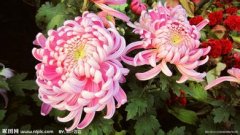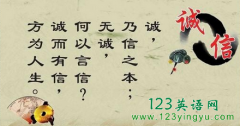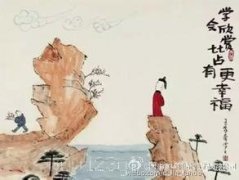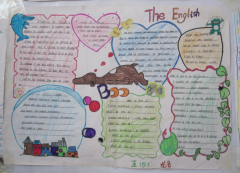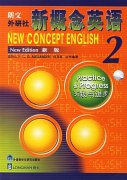高考英语语法点详解:过去分词的用法
编辑:高中作文网 高考英语语法点详解:过去分词的用法
过去分词(Past Participle)属于类动词,是分词的一种,其构成一般在动词后面加-ed。过去分词的用法有很多,可作定语、状语、表语和宾语补足语。下面重点讲解过去分词各种用法。
一、过去分词作定语
1.过去分词作定语,作用相当于一个定语从句.如:
What's the language spoken (= that is spoken)in that area?那个地区讲的是什么语言?
Is there anything planned ( = that has been planned) for tonight?今晚安排了什么活动没有?
2.过去分词短语还可以作非限制性定语,作用相当于一个非限制性定语从句.如:
The book, written ( = which was written) in 1957, tells the struggle of the miners.这本书是1957年写的,讲的是关于矿工斗争的故事.
3.单个过去分词作定语常放在所修饰的名词之前,也可放在其后.如:
Do you know the number of books ordered?订了多少书,你知道吗?
They decided to change the used material.他们决定改变所用材料.
4.过去分词常表示动作发生的时间早于谓语动词,或者没有时间性,只表示被动关系.如:
The question discussed is very important.被讨论过的问题是很重要的.(既表被动又表完成)
I don't like to see letters written in pencil.我不喜欢看用铅笔写的信.(没有一定的时间性,只表被动)
5.注意过去分词与其它非谓语形式作定语的区别:现在分词(doing)作定语,表示一个主动的、正在进行的动作;现在分词的被动语态(being done)表示一个被动的、正在进行的动作;不定式(to do)作定语表示一个将要发生的动作.如:
The meeting being held(which is being held) now is very important.正在召开的这个会议很重要.
The meeting held(which was held) yesterday is very important.昨天召开的会议很重要.
The meeting to be held(which will be held) tomorrow is very important.明天将要召开的会议很重要.
二、过去分词作状语
1.作原因状语.
相当于as, since, because引导的从句,这类状语多放在句子前半部分.如:
Given advice by the famous detective, the young lady was no longer afraid. (Since/ As she was given by the famous detective...)有了着名的侦探的指点,姑娘不再害怕了.
Frightened by the noise in the night, the girl didn't dare to sleep in her room. (Because she was frightened by the noise...)姑娘被夜里的响声吓坏了,不敢在自己的屋里睡觉了.
Written very well, the novel is worth reading.书写工整的小说值得一看.
Done in a hurry, his homework was full of mistakes.他匆忙做的作业错误百出.
2.作时间状语.
相当于when引导的状语从句.如果两个动作同时发生,可在分词前用when, while等使其时间意义更明确.如:
When heated, water can be changed into steam.水加热后可以变成蒸汽.
注意:作时间状语时,过去分词如果同时表被动和动作完成,常可换用现在分词的被动完成式;过去分词如果只表被动,不表完成,则不可与现在分词的被动完成式换用.如:
Discussed(Having been discussed) many times, the problems were settled at last.在讨论了多次之后,问题终于解决了.(过去分词既表被动又表完成)
Seen from the hill, the park looks very beautiful.从山上看这个公园非常漂亮.(过去分词只表被动)
3.作条件和假设状语.
相当于if, unless引导的从句.如:
Given more attention(If they had been given more attention), the cabbages could have grown better.如果再精心一些,这些大白菜还可以长得更好.
Compared with you, we still have a long way to go.和你相比,我们还有很大的差距.
4.作方式或伴随情况状语.
The hunter left his house , followed by his dog.猎人离开了屋子,后面跟着他的狗.
She sat by the window, lost in thought.她坐在窗前,陷于沉思.
作状语表示方式或伴随情况时,过去分词可用并列句代替.如:
The hunter left his house, followed by his dog. (= He was followed by the dog. )
5.用分词短语作状语时,它逻辑上的主语要与句子的主语保持一致,否则分词短语就要有自己的逻辑主语(用名词或代词的主格来表示).这种结构称为独立主格结构.
All our savings gone,we started looking for jobs.积蓄全部用完了,我们就开始找工作.(All our savings gone是过去分词的独立主格结构)
He rushed into the room, his face covered with sweat.他满脸是汗冲进屋内.(his face covered with sweat是过去分词的独立主格结构)
三、过去分词做表语
作表语的过去分词主要来自及物动词,在主-系-表句型中, 总是在连系动词如:be, appear, feel, remain, seem, look等之后,说明主语所处的一种状态。you seem frightened. the children looked puzzled.
少数不及物动词(如go, come, set)的过去分词也能作表语,但它们不表示被动意义,只是表示动作完成。they are gone for vacation.
注意与be连用时,要注意区分是“系表结构”还是“被动语态”。作表语的过去分词表示状态,而被动语态中的过去分词表示动作。
the glass is broken. the glass was broken by tom.
说明:作表语用的过去分词表示主语的特点或所处的状态,强调主谓关系。这种结构中的过去分词前可加quite, very, rather等修饰词。系动词可有多种,表示不同的意义;被动语态表示动作,强调动宾关系,绝大多数被动结构中的行为执行者还可以用by短语来表示。
四、过去分词作宾补的用法
过去分词作宾补时,过去分词所表示的动作一定和宾语有逻辑上的动宾关系。过去分词作宾补表示被动关系,其动作先于谓语动作。
能够接过去分词作宾补的动词有以下三类:
表示感觉或心理状态的动词。如:see, watch, observe, look at, hear, listen to, feel, notice, think等。i heard the song sung in english.
he found his hometown greatly changed.
表示“致使”意义的动词。如:have, make, get, keep, leave等。
i'll have my hair cut tomorrow. he got his tooth pulled out yesterday.
3. 表示“希望”、“要求”意义的动词。如:like, order, want, wish等。i would like this matter settled at once.
i wish my homework finished before five o'clock.
注意:1. 使役动词have接过去分词作宾补有两种情况。
第一,过去分词所表示的动作由他人完成。如:he had his money stolen.
第二,过去分词所表示的动作由句中的主语所经历。
he had his leg broken.
过去分词在原句中作宾补时,如果原句变为被动语态,那么过去分词就在新句中作主补了。如:the big fire is reported controlled.
the meeting room was found thoroughly cleaned and everything arranged in good order.


